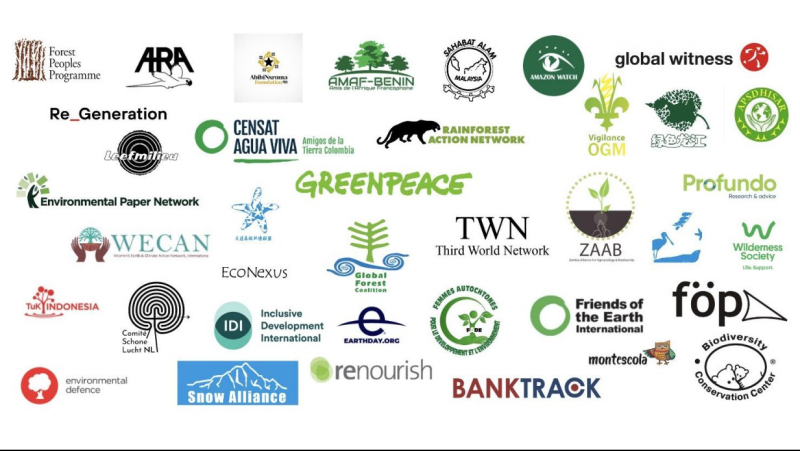48 civil society organizations and networks express “profound concern” that TNFD will assist greenwashing
Hannah Greep, Banks & Nature Campaign Lead, BankTrack

Hannah Greep, Banks & Nature Campaign Lead, BankTrack
Today, 48 civil society organizations and networks - whose members include over 220 organizations on six continents - have publicly written to the Taskforce on Nature-related Financial Disclosures (TNFD) to express their “profound concern” with its work. The open letter is the latest in a series of escalating efforts by CSOs to raise the alarm on TNFD’s work and its potential to facilitate corporate greenwashing. It is timed to coincide with TNFD representatives speaking on various panels at the International Union of Conservation of Nation Leaders Forum this week.
The taskforce is composed of 34 global corporations and is developing a framework for how businesses should self-report on their nature-related risks. While it is a voluntary initiative, already the Co-Chair of TNFD has called for it to be made mandatory. In June TNFD released the second of its four planned drafts, with the third due in November. The letter comes at a time of increasing international focus on the need to stem the trillions of dollars in financing that are driving the nature crisis and the human rights abuses that often underpin it.
The letter raises various concerns. This includes that TNFD’s proposal wouldn’t require a business to report on: its impacts, such as risks or harms to nature and people, complaints about its environmental practices or lobbying against new environmental laws, or even disclose where it operates, sources from or finances. The letter also calls out TNFD’s secretive decision-making processes and that it is failing to value the expertise of rights holders.
Further background on TNFD and a collation of resources about civil society concerns can be found here.
“The potential for TNFD to facilitate greenwashing is very real. Under its proposed approach, a company can claim to be a champion of biodiversity while secretly lobbying to undermine laws that would protect nature and hold corporations to account.” - Merel van der Mark, coordinator of the Forests & Finance Coalition
"The world needs a hard-edged biodiversity disclosure regime that will facilitate the movement of money away from destructive activities. We don’t need a bookclub for industry lobbyists to greenwash capital’s complicity in the biodiversity crisis. So many of the participants and stakeholders that have leapt upon the TNFD have been the very same industry groups and companies who have actively campaigned against environmental and First Nations rights in Australia for the last 50 years. To see their participation in the TNFD without any consequent indication that they are changing or willing to change their approach is ringing alarm bells for us. We are looking for something better than this.” - Tim Beshara, Manager of Policy and Strategy, Wilderness Society (Australia)
“Rainforest Action Network and others have supplied an array of evidence, case studies and supporting materials to TNFD outlining the serious flaws in its approach, and various options to mitigate its worst impacts. Core to this has to be prioritizing the expertise of those with lived experience of the nature crisis and those most affected by its devastation. Yet it has failed to act. For an initiative that claims to be ‘science-based’ it doesn’t appear particularly interested in acting on the evidence.” - Shona Hawkes, Adviser, Rainforest Action Network
“Investors and central banks should also be wary. Under TNFD’s proposal, investors won’t have access to essential information to gauge whether their money is helping, or harming, biodiversity and the people who protect it. What possible benefit can there be for keeping people in the dark about such basic facts as whether a company is facing complaints about its role in environmental abuse?” - Karen Vermeer, Finance Working Group Coordinator, the Environmental Paper Network
“If you ask a roomful of global corporations if they’d like to report on their environmental and human rights abuses the answer is hardly likely to be an enthusiastic ‘yes’. Let’s be clear, TNFD’s substandard recommendations aren’t based on evidence, but the level of ambition of its taskforce members.” - Veronica Oakeshott, Forest Team lead, Global Witness
The letter is also available in French, Portuguese and Spanish.
